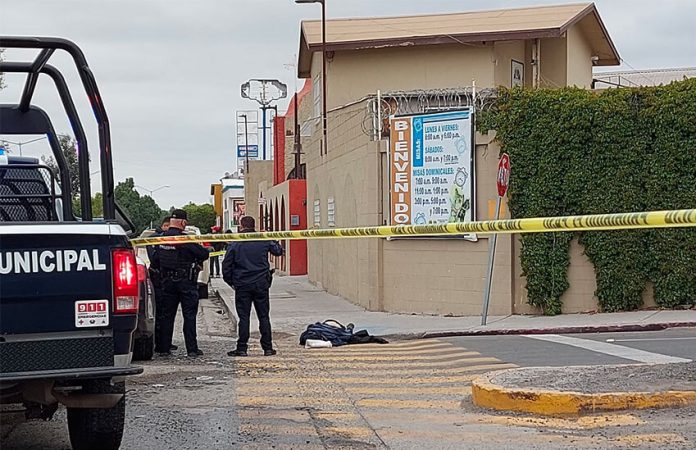Guerrero got a new federal security plan in October, Zacatecas got one in November, and now Baja California is to become the third state in as many months to qualify for reinforced security efforts.
President López Obrador said Monday that he will travel to Tijuana – Mexico’s most violent city – on Saturday to address security issues in the northern border state, where more than 2,500 homicides were recorded in the first 10 months of the year.
He said a “special plan” to strengthen security in Baja California, the country’s second most violent state this year for total homicides, will be adopted.
Cells of the Sinaloa Cartel and the Jalisco New Generation Cartel (CJNG) are engaged in a turf war over drug dealing locations in Tijuana and other cities, according to state security officials who spoke with the newspaper Milenio.
They’re fighting for the streets and corners of different neighborhoods, the unnamed officials said, naming Sánchez Taboada – which has been described as the most dangerous neighborhood in Tijuana – as a hotspot.
“It’s an issue of narcomenudeo [small-scale drug trafficking] on [street] corners,” one official said.
The competing cartel cells are mainly selling methamphetamine on the streets, the officials said, although drugs such as cocaine and heroin are also available. They also said that more than 1,000 sicarios, or cartel hitmen, have been arrested in Baja California since 2019.
A man believed to be the leader of the Sinaloa Cartel in Tijuana and considered one of the main instigators of violence in the city was arrested in September, but the violence goes on.
The officials told Milenio that different criminal cells dominate different parts of Tijuana. They noted that drug dealers sometimes change allegiances and start working for a different “criminal company.”
“That’s why they kill them,” they said, adding that members of the Arellano-Félix organization, also known as the Tijuana Cartel, work with both the CJNG and the Sinaloa Cartel.
The federal government deployed additional soldiers and members of the National Guard to Guerrero and Zacatecas to stem violence in those states.
It has also bolstered security efforts in Mexico’s 50 most violent municipalities, among which are four Baja California cities: Tijuana, Ensenada, Tecate (allegedly the CJNG’s Baja California base) and Mexicali.
Homicides declined in the first three municipalities in the three months between August and October compared to the same period of 2020, according to official data, but increased in Mexicali. Still, much more needs to be done to pacify the state.
Details about the government’s security plan are expected to be announced at a press conference on Saturday.
“We’re going … to Baja California [to deal with] the security issue and we’ll report [from] there,” López Obrador told his Monday morning press conference.
With reports from Milenio
